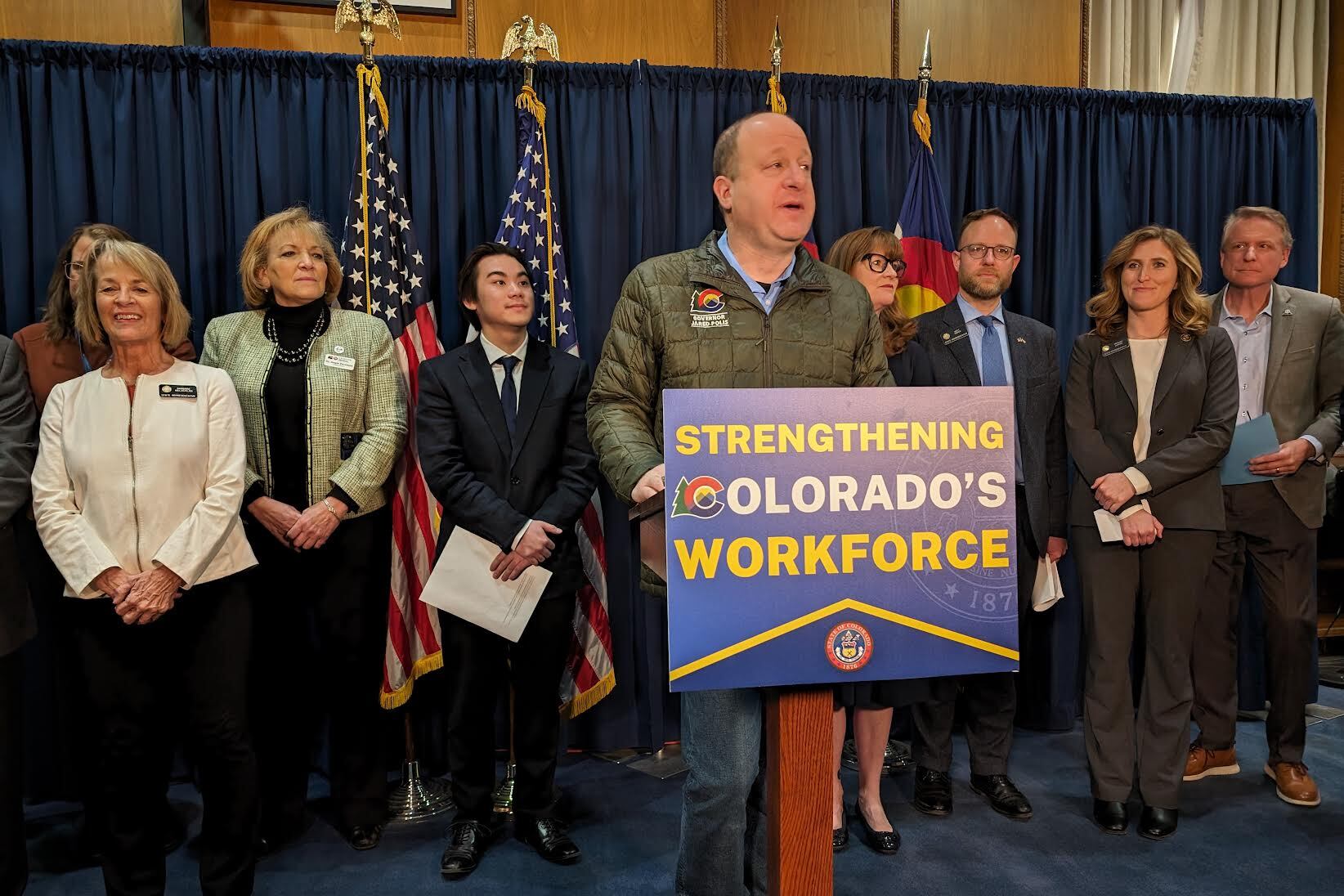Sign up for our free monthly newsletter Beyond High School to get the latest news about college and career paths for Colorado’s high school grads.
Colorado lawmakers hope a package of bills this year will help connect more residents to training that helps them land in-demand jobs with good wages.
Lawmakers believe the nine bills, once they’re all filed, will improve the state’s disjointed workforce education system. They also hope the proposals will help get more residents job training at little to no cost.
The proposals include the continuation of a statewide workforce training grant program; a study to analyze how well the state’s various career programs serve students; an expansion of Colorado’s apprenticeship program; and funding for workforce grant programs, such as paying for businesses to start workforce training programs.
Gov. Jared Polis said during a news conference Thursday that the proposals address the state’s need for more skilled workers, and noted that there are nearly two job openings for every unemployed person.
“There’s often a mismatch between unemployed Coloradans and the jobs that are open today and pay well,” Polis said. “And that’s really what the strategic approach of bipartisan pieces of legislation will help close.”
To a certain extent, the bills follow the recommendations in a report released this year on improving workforce education in Colorado. One overarching theme of the report (which state lawmakers commissioned in 2023) is the importance of making the end of high school and the beginning of college seamless enough that students leave with skills relevant to careers. This concept is known as the “Big Blur.”
Polis wants Colorado to be a leader in offering students this type of education, especially since most Colorado jobs that offer high pay and salary growth require some sort of training beyond high school.
Polis said the bills will be funded through a combination of state and federal money.
In particular, a statewide analysis of workforce programs would be helpful to see where the gaps and opportunities are in the state, including ensuring students in rural and remote areas have the ability to take advantage of these programs, said House Speaker Julie McCluskie, a Dillon Democrat.
“We are laying the groundwork to set Colorado learners on a path to success by improving access to these programs,” she said.
A bipartisan group of lawmakers have already filed some of the bills, while they were expected to file others on Thursday. Here’s more on what the proposals would do:
- Lawmakers want to provide a final round of $3.8 million in funding for the Opportunity Now grant program that’s specifically focused on building and construction trades. Opportunity Now is an $85 million grant program funded by federal pandemic relief dollars. The goal has been to offer communities funding to come up with local solutions to get residents college education and workforce skills that translate to jobs. The bill also would create an annual $15 million tax credit to improve training.
- Through a new study, Colorado lawmakers plan to explore the effectiveness of the state’s workforce programs, such as high schools with a fifth-year option, technical programs, and early college.
- Lawmakers want to expand apprenticeship programs. The state would use $2 million to help businesses start or expand opportunities, $2 million for those who help support the administration of apprenticeship programs, and $30 million in annual, refundable tax credits to offset apprentices’ wages.
- Senate Bill 104 would align high school career education programs with what the state offers in apprenticeship programs.
- House Bill 1097 would make it easier for members of military families to get licensed in fields such as teaching or health care if they have credentials in another state.
- Senate Bill 50 would create a pilot program that helps pay for the creation of business and nonprofit workforce training programs.
- Senate Bill 143 would evaluate whether workforce programs, such as industry apprenticeships, meet an education standard and require programs to have a standard.
- House Bill 1264 would create an online portal to assist K-12 teachers with career incentives, job postings, and applications. Lawmakers have filed similar legislation in recent years to help teachers, especially because of shortages statewide.
- House Bill 1231 would provide money for the construction of three new colleges focused on health and veterinary care. The state is facing worker shortages in those areas. The bill would also provide money to help renovations at Trinidad State College.
Jason Gonzales is a reporter covering higher education and the Colorado legislature. Chalkbeat Colorado partners with Open Campus on higher education coverage. Contact Jason at jgonzales@chalkbeat.org.






